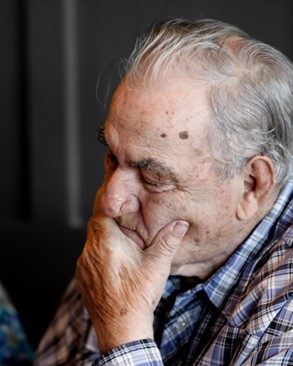Katha Knippa is an RN and participates in charitable organizations such as the American Red Cross, Ordinary Women, Goodwill, and Doctors Without Borders. As a caregiver, Katha Knippa understands the importance of recognizing and treating depression symptoms in the elderly community. In the following article, Katha Knippa of Houston explores the unique challenges of depression in the elderly, including its symptoms, treatment options, and ways to provide care and support to older adults facing this condition.
Depression, a prevalent mental health disorder, can manifest in individuals across all age groups, including the elderly demographic. While occasional bouts of sadness or grief are typical human experiences, persistent and pervasive feelings of despondency, hopelessness, and a diminished sense of self-worth could signify the presence of depression, particularly in older adults.
Despite the misconception that depression is an inherent aspect of aging, it is crucial to recognize that it is not a normal or inevitable consequence of growing older. Instead, it is a treatable condition that warrants attention and intervention. In seniors, signs may present differently than in younger individuals, often accompanied by physical symptoms such as chronic pain, fatigue, or a decline in cognitive function. Therefore, Katha Knippa says that understanding the nuanced symptoms in older adults is vital for timely diagnosis and effective management, ultimately enhancing their overall quality of life.
Katha Knippa on the Complexity of the Matter
Depression among the elderly is a complex issue often overshadowed by other age-related concerns, such as cognitive decline or physical ailments. However, it is essential to recognize that persistent sadness or despondency is not an inherent aspect of aging and should not be trivialized or dismissed. Instead, it warrants careful consideration and appropriate intervention.
Numerous factors contribute to the heightened risk of depression among older adults, including the presence of chronic health conditions, social isolation, bereavement due to the loss of loved ones, and significant life transitions such as retirement or relocation. These factors can significantly impact an individual’s mental and emotional well-being, potentially exacerbating feelings of loneliness, helplessness, and hopelessness.
Moreover, the interplay between physical health and mental health in the elderly population underscores the importance of holistic assessments and comprehensive interventions to address both the physical and psychological aspects of well-being. By acknowledging and addressing the unique risk factors and challenges faced by elderly individuals, healthcare professionals and caregivers can better support their mental health needs and promote overall resilience and quality of life.
 Symptoms of Depression in the Elderly
Symptoms of Depression in the Elderly
Recognizing the signs and symptoms of chronic sadness in the older adults is essential for early intervention and treatment. While some symptoms of depression may overlap with typical age-related changes, such as sleep disturbances and fatigue, others are more specific. Katha Knippa explains that these symptoms may include:
- Persistent feelings of sadness, emptiness, or hopelessness
- Loss of interest or pleasure in activities once enjoyed
- Changes in appetite or weight
- Sleep disturbances, including insomnia or oversleeping
- Fatigue or loss of energy
- Difficulty concentrating or making decisions
- Feelings of worthlessness or guilt
- Thoughts of death or suicide
Treatment Options for Depression in the Elderly
Treating depression in seniors often requires a multifaceted approach that may include a combination of medication, psychotherapy, and lifestyle modifications. Antidepressant medications, such as selective serotonin reuptake inhibitors (SSRIs) or serotonin-norepinephrine reuptake inhibitors (SNRIs), are commonly prescribed to help alleviate symptoms of sadness. However, it’s essential to work closely with a healthcare provider to determine the most appropriate medication and dosage, as older adults may be more sensitive to certain medications and may experience more side effects.
In addition to medication, psychotherapy, such as cognitive-behavioral therapy (CBT) or interpersonal therapy (IPT), can be beneficial for elderly individuals with depression. Therapy can help seniors identify and challenge negative thought patterns, develop coping skills, and improve communication and problem-solving abilities.
Katha Knippa of Houston also notes that lifestyle modifications, such as regular exercise, healthy eating, adequate sleep, and social engagement, can also play a significant role in managing depression in the elderly. Exercise has been shown to have mood-lifting effects and can help reduce symptoms of depression. Similarly, maintaining a healthy diet and getting enough sleep can support overall well-being and mental health. Social engagement and meaningful activities can provide seniors with a sense of purpose and connection, reducing feelings of isolation and loneliness.
Care and Support for Elderly Individuals with Depression
Providing care and support to elderly individuals with depression requires patience, empathy, and understanding. Katha Knippa of Houston says that family members, caregivers, and healthcare professionals can play a crucial role in helping seniors navigate their mental health challenges and access the support they need.

- Encourage open communication: Create a supportive environment where seniors feel comfortable discussing their feelings and experiences. Encourage them to express themselves and listen nonjudgmentally.
- Provide companionship and social support: Loneliness and social isolation can exacerbate depression in the elderly. Spend quality time with seniors, engage in activities they enjoy, and encourage social interactions with friends, family, and community members.
- Help with daily tasks: Katha Knippa of Houston explains that depression can make it challenging for seniors to perform everyday tasks such as cooking, cleaning, and personal care. Offer practical assistance with these tasks to alleviate stress and lighten their load.
- Monitor medication adherence: Ensure that seniors are taking their medications as prescribed and attending follow-up appointments with healthcare providers. Help them manage their medications and address any concerns or side effects they may experience.
- Stay vigilant for signs of worsening symptoms: Keep an eye out for changes in behavior or mood that may indicate worsening depression or suicidal thoughts. Katha Knippa of Houston suggests seeking immediate medical attention if you notice any warning signs, such as talk of suicide, withdrawal from activities, or significant changes in appetite or sleep patterns.
Conclusion
Katha Knippa of Houston emphasizes that depression is a significant mental health concern for elderly individuals, but with proper recognition, intervention, and support, it can be effectively managed. By understanding the symptoms of depression in the elderly, exploring treatment options, and providing compassionate care and support, we can help older adults lead happier, healthier lives. If you or someone you know is struggling with depression, don’t hesitate to seek help from a healthcare professional or mental health provider. Remember, you are not alone, and there is hope and support available.








